
Pong
중국 베이징의 전설 시대, 극은 북경 성벽 앞 광장에서 한 관리가 등장해 율령을 반포하며 시작한다. 투란도트 공주와 혼인하려면 수수께끼를 풀어야하고, 실패하면 참수된다는 내용의 이 울령으로 말미암아 많은 남자들이 수수께끼에 도전하게 되는데...

Thierry
프랑스혁명이 한창인 무렵, 젊고 아름다운 블랑슈 드 라 포르스(Blanche de la Force)의 오빠와 아버지는 블랑슈가 매사에 너무 두려움이 많아 걱정이다. 블랑슈는 혼란한 세상에 환멸을 느끼고 있다. 특히 언젠가 마차를 타고 가다가 폭도들에게 잡혀 곤욕을 치른 뒤로는 세상에 대한 두려움이 한층 더 커졌다. 블랑슈는 속세를 떠나 수녀가 되기로 결심하고 가르멜회 수녀원의 수습 수녀로 들어간다. 그녀는 수녀명을 ‘그리스도의 고뇌 블랑슈’로 정한다. 젊은 수습 수녀 콩스탕스(Constance)가 혼돈스러워 하는 블랑슈의 친구가 되어준다. ‘아기 예수의 콩스탕스’라는 이름의 젊은 수습 수녀는 천성이 명랑하고 쾌활하다. 어려운 일이 있으면 주님께 기도하고 도움을 청한다. 친구가 된 두 사람은 주님을 위해 같은 날 함께 죽기를 기원하는데...
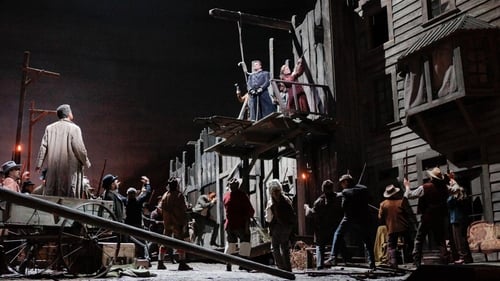
Trin
더 폴카(The Polka)라는 간판이 붙어 있는 살롱(saloon)에서 작은 금광을 하나 소유한 애시비(Ashby)가 무법자 래머레즈(Ramerrez)를 저쪽 골짜기에서 보았다고 얘기한다. 광부들과 술주정꾼들은 그 말에 별로 신경을 쓰지 않는다. 주점의 한쪽 벽에는 래머레즈의 현상 포스터가 붙어 있다. 이때 처음 보는 수상한 사람이 주점으로 들어오게 되는데...
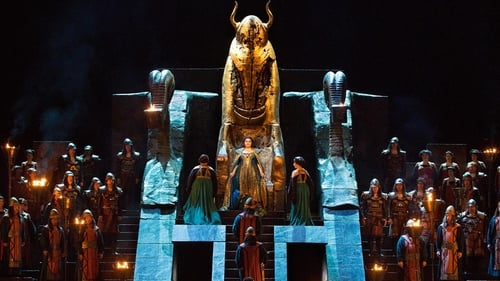
Abdallo
The legendary Plácido Domingo brings another new baritone role to the Met under the baton of his longtime collaborator James Levine. Liudmyla Monastyrska is Abigaille, the warrior woman determined to rule empires, and Jamie Barton is the heroic Fenena. Dmitri Belosselskiy is the stentorian voice of the oppressed Hebrew people.
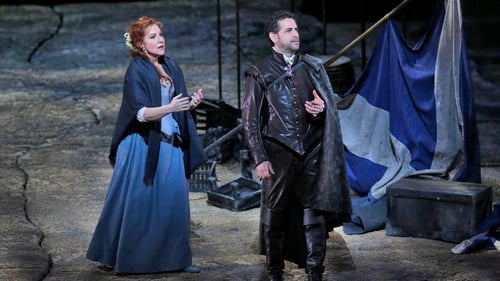
Serano
An all-star cast assembled for the Met’s first-ever performances of Rossini’s romantic retelling of Sir Walter Scott’s epic poem The Lady of the Lake. Joyce DiDonato is Elena, the title heroine, who is being pursued by not one, but two tenors—setting off sensational vocal fireworks. Juan Diego Flórez is King James V of Scotland, disguised as the humble Uberto, and John Osborn sings his political enemy, and rival in love, Rodrigo Di Dhu. Complicating matters is the fact that Elena herself loves Malcolm, a trouser role sung by mezzo-soprano Daniela Barcellona, and that she is the daughter of Duglas (Oren Gradus), another of the king’s political adversaries. Paul Curran’s atmospheric production is conducted by Michele Mariotti.

Le Remendado
Georgian mezzo-soprano Anita Rachvelishvili gives a dynamic performance as Bizet’s iconic gypsy, the woman who lives by her own rules. Aleksandrs Antonenko is Don José, the soldier who falls under her spell, and Ildar Abdrazakov plays Escamillo, the swaggering bullfighter who takes Carmen away from Don José—an action that seals Carmen’s tragic fate. Anita Hartig is Micaëla, and Pablo Heras-Casado conducts Richard Eyre’s hit production, set in 1930s Spain.
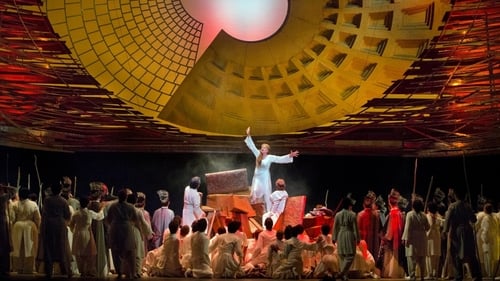
Helenus
Berlioz’s epic masterpiece retells the magnificent saga of the aftermath of the Trojan War and the exploits of Aeneas. Rising tenor Bryan Hymel, in his Met debut, stars as the hero charged by the gods with the founding of the city of Rome. Susan Graham is Dido, Queen of Carthage, who becomes Aeneas’s lover, and Deborah Voigt sings Cassandra, the Trojan princess whose warnings about the impending destruction of Troy go unheeded. Francesca Zambello’s atmospheric production, featuring choreography by Doug Varone, is led by Met Principal Conductor Fabio Luisi.
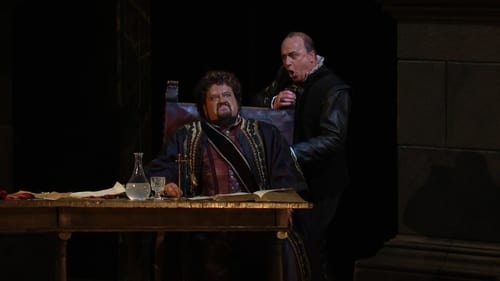
Roderigo
In Verdi’s retelling of Shakespeare’s towering tragedy, Renée Fleming gives a captivating performance as the innocent Desdemona, a role long considered one of her calling cards. Johan Botha as the title hero delivers an imposing portrayal of a proud warrior brought down by jealousy, and Falk Struckmann is thrilling as the villainous Iago. James Morris sings Lodovico. Elijah Moshinsky’s production is conducted by Semyon Bychkov.

Sir Hervey
David McVicar's atmospheric and brooding production captures the drama of this riveting piece of British history, retold as only Donizetti could. International superstar Anna Netrebko is Queen Anne Boleyn, trapped in an unhappy marriage to King Henry VIII (Ildar Abdrazakov) whose roving eye has settled on another woman—Jane Seymour (Ekaterina Gubanova), Anna's friend, but now her unwitting rival. Add in Anna's early love, Percy (Stephen Costello), just returned to the court from exile, and the result is a haunting, explosive account of Queen Anna's tragic final days, before she goes to her execution in one of the most moving and dazzling final scenes in all of opera.

Ruiz
Giuseppe Verdi's masterpiece calls for 4 great singers: one weak link and the whole may collapse. The Metropolitan Opera assembled a quartet of stars for this new production by David McVickar: Sondra Radvanovsky, Marcelo Álvarez, Dolora Zajick, and Dmitri Hvorostovsky. The opera - about mistaken identities and hair-raising bloody revenge - could hardly receive a better performance.
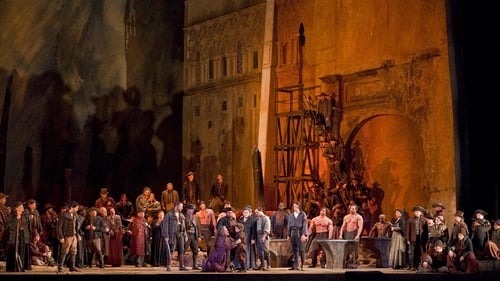
Ruiz
Verdi’s IL TROVATORE again storms the Met stage in a star-studded, anvil-wielding cast , including Sondra Radvanovsky, Dolora Zajick and Dmitri Hvorostovsky. Marcelo Álvarez sings Manrico, the troubadour of the title. The story is well-known already: The gypsy Azucena has harbored a grudge for thirty years, but she is about to have revenge at last. Meanwhile, her son Manrico is in love with Leonora, but so is his arch-enemy, the Count Di Luna. A pot-boiler, where every tune is a hit.

The Count of Lerma
Family jealousy, threat of rebellion, political back-stabbing and the Inquisition weigh heavy on the court of King Phillip II. The tension finally ignites at the King's coronation, where a number of heretics are to be burnt at the stake.
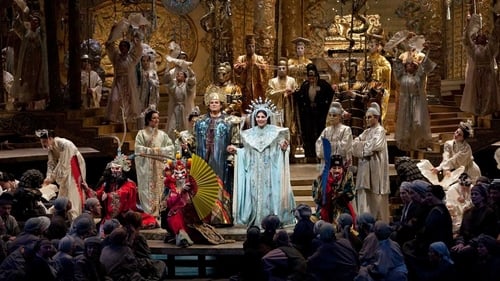
Pong
Franco Zeffirelli's magnificient staging of Puccini's final opera - a fairy tale set in a mythical China - is one of the most popular in the Met repertory. In this Live in HD production, Maria Guleghina takes on the title role and Marcello Giordani is Calaf, the unknown prince. Marina Poplavskaya and Samuel Ramey co-star, and Andris Nelsons conducts in his Met debut.

Sir Bruno Roberton
It's hard to imagine a video opera collection without this superbly sung MET production of Bellini's I Puritani. Not that it's perfect by any means, but its excellences--most especially Anna Netrebko's electrifying singing and acting of Elvira--banish carping about other aspects of this memorable night at the opera. Netrebko is fragile from the start, her facial expressions and hand movements immediately conveying the girl's vulnerability. She has a mad scene in each act; the first when she realizes her fiancé has disappeared with another woman, the third, in the final act, a brief relapse when her returned fiancé is taken by the army to be executed. But it's in the second act that the real fireworks occur, with a Mad Scene that rivals Donizetti's Lucia for bel canto primacy. Here, Elvira is first heard off-stage, after the chorus has informed us that she's deranged. She enters wearing her wedding gown and begins Qui la voce in a voice as frail as her psyche.













